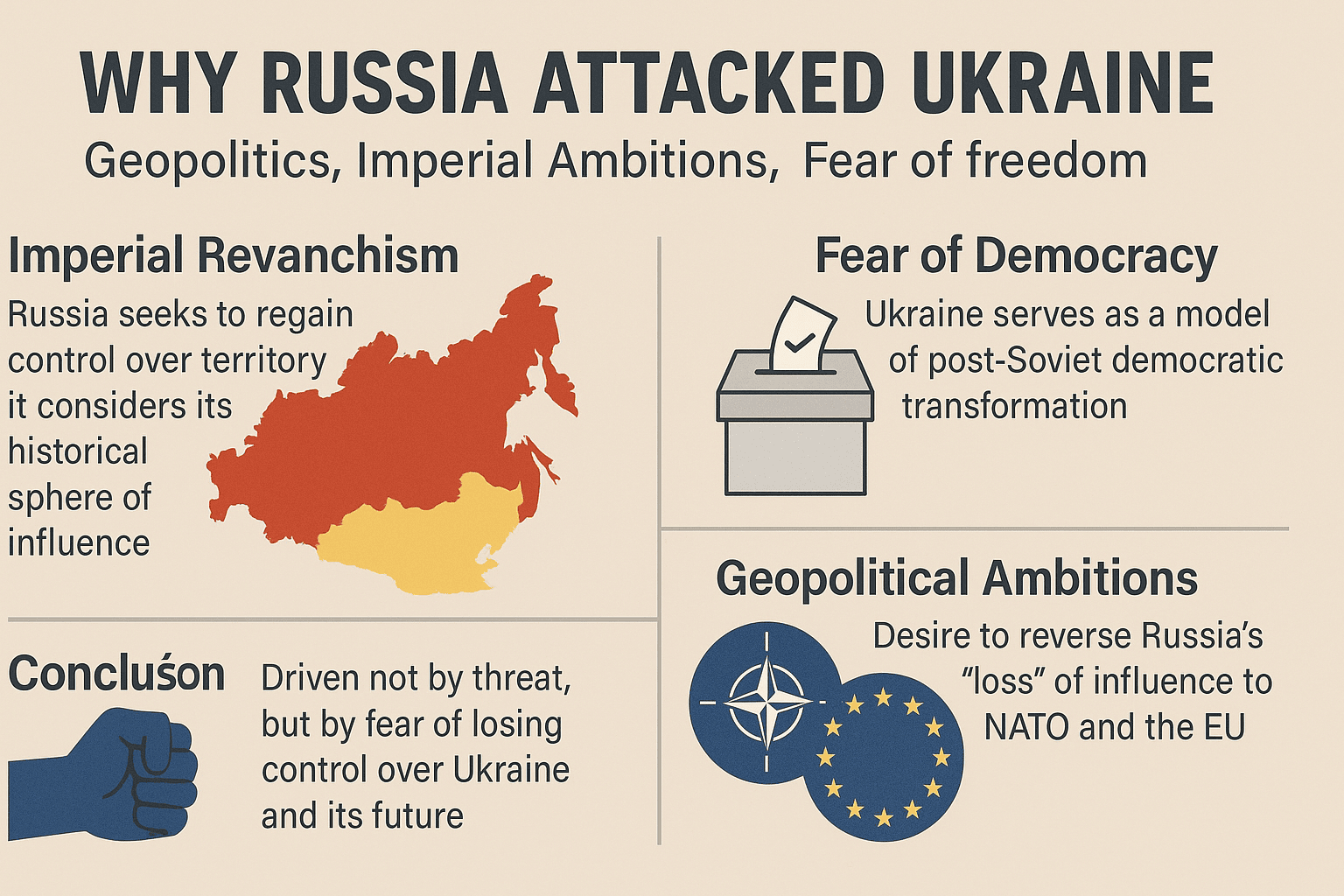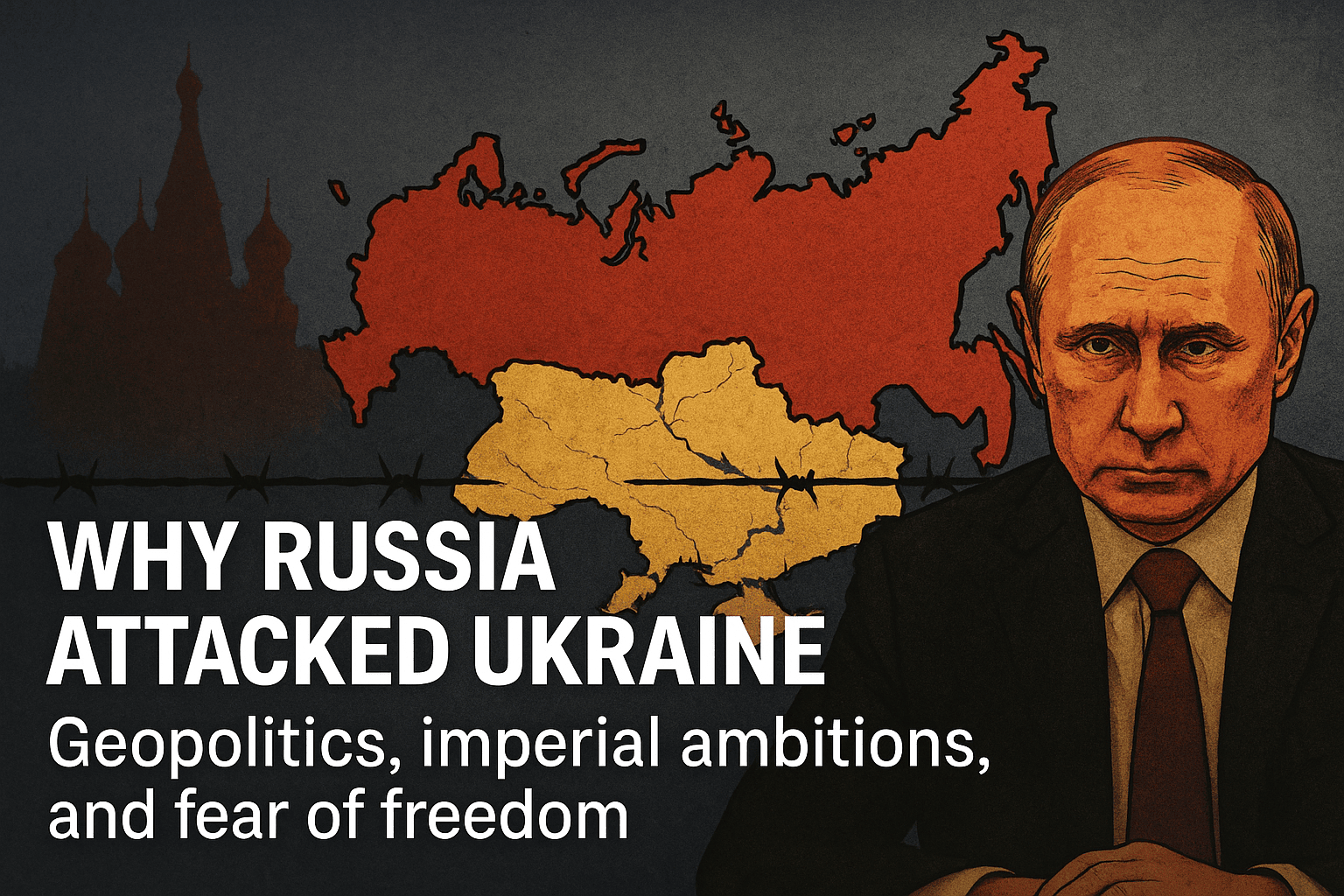Why Russia attacked Ukraine: geopolitics, imperial ambitions, and fear of freedom
On February 24, 2022, Russia launched a full-scale invasion of Ukraine — an event that changed the course of modern history, caused thousands of deaths, millions of refugees, and a global reassessment of the world's security architecture. The reasons for this attack are multifaceted, but they all boil down to a combination of imperial ambitions, geopolitical fear, and the internal weakness of the Russian regime.
Imperial revanchism
The Russian authorities, in particular Vladimir Putin, have repeatedly stated that the collapse of the USSR was “the greatest geopolitical catastrophe of the 20th century.” Ukraine is a key element of this loss. Its independence, European course, and national revival contradict the Kremlin's vision of the “Russian world” — a concept that envisions the cultural, political, and economic integration of post-Soviet countries under Russian control.
The attack on Ukraine is an attempt to regain control over territory that Russia considers its historical sphere of influence. This is not just a war for land — it is a war for ideology, for Ukraine's right to be free.
Fear of democracy
Ukraine is an example of how a post-Soviet state can transform into a democratic society with free elections, an active civil society, and European aspirations.

Geopolitical ambitions
Russia seeks to regain its status as a global player capable of dictating terms to the West. Ukraine, as a state actively cooperating with NATO and the EU, has become a symbol of Russia's “loss” of control over the region. The attack was intended to disrupt Ukraine's European integration, break its army, change the government, and establish a pro-Russian regime.
However, the Kremlin miscalculated: the Ukrainian people united, the army put up a worthy resistance, and the international community imposed unprecedented sanctions against Russia. Russia's internal problems
An equally important reason is the internal crisis in Russia itself. Economic stagnation, social tension, and growing isolation required the regime to find an “external enemy” in order to mobilize the population. War became a tool for consolidating power, suppressing opposition, and justifying repression.
Conclusion
Russia attacked Ukraine not because of a threat, but because of fear — fear of freedom, fear of losing control, fear of a future in which Ukraine chooses its own path. This is a war not only for territory, but for values. And that is why Ukraine is fighting not only for itself, but for the entire democratic world.


Comments are closed.